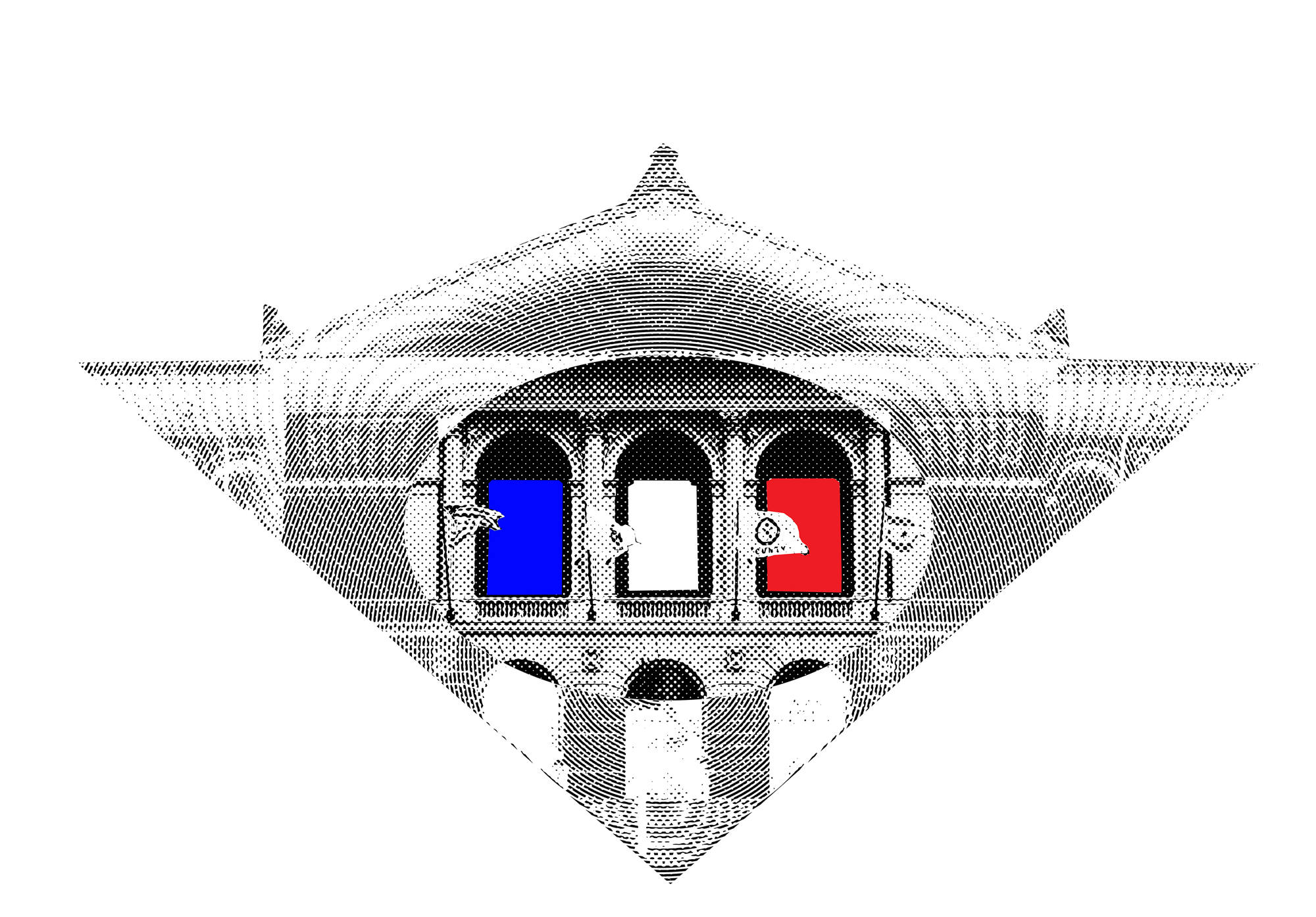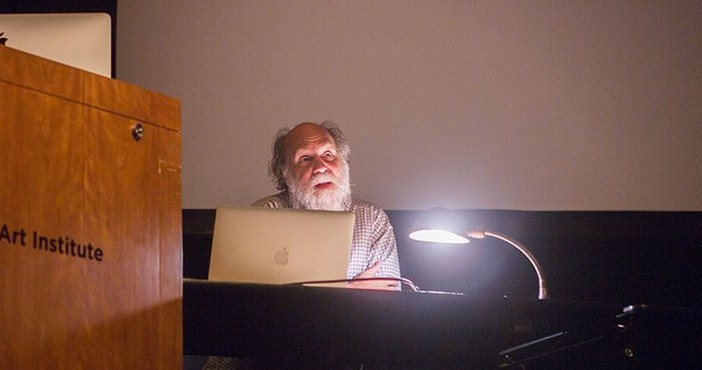Naomi Beckwith, Guillaume Désanges and Matthieu Poirier Discuss Partnerships
My first experience of the EXPO CHICAGO international art fair last year could be described as a three day long screed of visual and auditive information. As I looked for a different experience this time, I decided to focus on the /Dialogues series. Organized by SAIC, /Dialogues took place in an improvised conference room with chairs carefully aligned in rows, framed by more informal sofas and comfy armchairs.
The first panel I attended, “Collecting: Challenges in a New World,” had all of the elements that make me fail to understand why anyone sane would attend a panel in the first place. A covey of specialists whose skills — although manifold — fail to include the basics of public speaking: awareness and engagement with the audience, spontaneity and dynamism.
Undefeated, I showed up again for “In Conversation: French Curator Exchange.” Moderated by founder of Contemporary Art Daily Forrest Nash, this panel included MCA curator Naomi Beckwith, as well as French independent curators Guillaume Désanges and Matthieu Poirier. Perseverance paid off.
The title and description of the talk as I had read it on the program had made me somewhat skeptical. A partnership between Chicago and France, or in other words, between one city and an entire, although admitted small, country? It sounded like an approximative theme used to justify a program potentially hiding obscure agendas.

Beckwith, Désanges and Poirier were very candid as they explained that this exchange project was barely starting and that they actually had close to no idea to what the outcomes could be. The plan so far, is that each one of them will dedicate the coming year to research their own topic and interests in new environments: France for Beckwith and Chicago for Poirier and Désanges.
Beckwith stands out as a very inspiring curator and charismatic speaker. She talks with passion about all of the artists she has worked with, among them French artist Jimmy Robert and Paris-based Moroccan artist Mune Fatmi. She will be taking her interests in working with artists of African descent and fostering dialogue about the heritage of the Pan-African movement to Paris. In a country where there has never been an equivalent to the Civil Rights Movement despite a substantial colonialist past, and where debates about race, Black and Maghrebine identity are scarce, Beckwith’s research and potential input appear promising.
Désanges, who originally studied to be an economist and turned to the arts about 10 years ago, has an original approach to the art of curating. He confesses his taste for what he calls “curating in a state of emergency” with limited resources and time. A recent project he worked on at the Perez Art Museum in Miami (PAMM) last January, The Dora García Files, implied putting an exhibition together in 24 hours. Inspired by traveling reptile shows in France, he also curated a traveling contemporary art show which he described as a “welcoming trap” for uninitiated audiences to fall into. Beyond the curating experiment, this exhibition was, for Désanges, a materialization of his “deep relationship with art,” which, in his own words, is “a mix of fear, knowledge and curiosity,” just like the aforementioned reptile shows. One of his most interesting curating works has to be A History of Performance in 20 Minutes, a curious hybrid between conference, exhibition and, well, performance. As Désanges himself read his own writing of the history of the discipline, an artist performed the text that was being said out loud. Désanges compares his curatorial practice to the de-skilled movement in conceptual photography. According to him, de-skilled curating is a constant challenging of the dominant form, always finding new ways of approaching the discipline.
Before jumping into the curating maze, Poirier was — and remains — an art historian and art critic. His main area of expertise is conceptual, and more precisely, optical art. After focusing on the reception of optical art by the greater public since its beginnings, he took on curating as a way to bring people closer to what he thought was worth seeing. “I just want you to share this beautiful poison that is art,” he says. Perception, and its viability as a medium in itself, is at the center of his academic and curatorial practice. His previous works as a curator include Landscope, (the title is a play between the words “landscape” and skopein, “to observe” in ancient Greek) an exhibition dedicated to landscape observation and the objectivity of the gaze. James Turrell, Julio LeParc and Jesus Rafael Soto are some of the artists Poirier has exhibited. Seeing himself as an ambassador of the artists he works for, Poirier defines his curating practice as the action of writing with works.
The value of this exchange could be edifying both for the curators and their respective country and city. The new debates they could foment in those parallel locations are equally valuable. As Poirier pointed out to during this talk, the benefit of a guided and supported discovery through such an exchange is to be “mechanically” confronted with works and artists these influential curators might not “naturally” encounter. It is an opportunity to find out whether the “conceptual language of art,” as Beckwith puts it, is similar elsewhere; a chance to test curatorial practices, artistic and social discourses in different context of production and consumption. This is a task that all three curators approached and discussed with a sincere sense of reality: “There won’t be results in the near future. More than anything it’s going to be a process,” concluded Beckwith.







